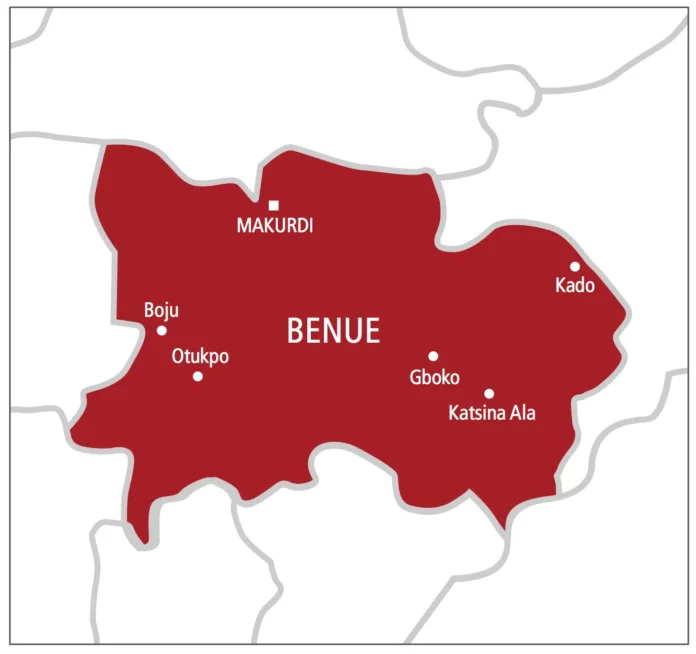At least 30 people have been killed in a series of brutal attacks on rural communities in Benue State.
The attacks, which took place over two days, targeted areas in Kastina-Ala and Logo Local Government Areas (LGAs).
Local sources revealed that gunmen, believed to be armed herders, raided multiple villages, leaving destruction and loss of life in their wake.
In the early hours of Sunday and Monday, over 300 attackers invaded various settlements, causing widespread fear and panic among residents.
The bloodshed began early on Sunday morning when armed herders launched an assault on the Azege community in Logo LGA.
According to community leader Chief Joseph Anawah, the attackers stormed the area at 7 am, overwhelming local security forces.
“They were heavily armed and outnumbered the security forces by far,” Anawah said. “It was a bloody attack, and we could not resist them until a military jet arrived to help.”
By the time the attackers retreated, more than 20 bodies had been recovered in Logo LGA alone.
Anawah added that the search for missing persons was still ongoing as of Monday, with many families still in shock over the loss of loved ones.
In Kastina-Ala, the assault continued, with herders reportedly armed with heavy weapons attacking villages like Adabo and Tse Gwebe.
Council Chairman Justine Shaku confirmed the violence, stating that many lives were lost and properties destroyed in the early hours of Monday.
Shaku also revealed that looting had occurred, with household items stolen from the affected homes.
“The situation is devastating,” Shaku said. “The people here are living in fear, and the scale of destruction is unimaginable. We have yet to confirm the exact number of casualties.”
The attacks have raised concerns about the increasing power of armed herders in the region, with many accusing them of using military-style tactics to terrorize local communities.
Clement Kav, the Council Chairman of Logo LGA, echoed these concerns, describing the attackers as a militia from outside Nigeria.
“These attackers have claimed ownership of the land in the Tombo area,” Kav said. “They justify their actions by saying that the land belongs to them. This is nothing but terrorism against innocent civilians.”
Kav also confirmed that 17 people had been killed in his area, with 37 others injured during the attack.
Despite these numbers, the police have reported a lower death toll. Police Public Relations Officer Catherine Anene confirmed the violence but said only five bodies had been recovered in Logo.
“The attack in Logo has been confirmed, and we are investigating the matter further,” Anene said. “So far, we have recovered five bodies, and we are working on identifying the other victims.”
As investigations continue, the Benue State government has pledged to provide more security to the region.
Governor Samuel Ortom has mobilized additional security forces to the affected areas to restore peace and prevent further violence.
“The state is under severe threat from armed herders,” said Ortom. “We are doing everything in our power to ensure the safety of our people and bring those responsible for these attacks to justice.”
The violent attacks have drawn outrage from across Nigeria, with many citizens condemning the growing insecurity in the region.
Activists and local leaders are calling for stronger government action to address the root causes of the violence, including the growing power of armed herders and their violent tactics.
“These attacks are a clear sign of how much control these armed groups have over the region,” said one local activist. “The government must take stronger steps to disarm these militants and protect the people of Benue.”
The attacks have also highlighted the ongoing tensions between farmers and herders in Nigeria, with disputes over land use and grazing rights often leading to violence.
In Benue State, where the majority of residents are farmers, clashes between farmers and herders have become increasingly common.
Many believe that the root cause of the violence lies in the struggle for control over land, with herders demanding access to farming territories for grazing.

